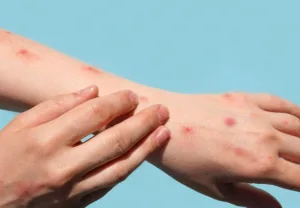Karachi is currently battling a significant rise in vector-borne diseases, including dengue, malaria, and chikungunya. The city’s hospitals are overwhelmed with patients suffering from viral infections as the number of cases continues to climb.
Medical experts from Jinnah Postgraduate Medical Center (JPMC) and Civil Hospital report that around 50 patients are being admitted daily, complaining of symptoms like fever, body aches, and cold. Many of these cases are suspected to be dengue, malaria, or chikungunya.
Rising Statistics in Karachi
According to the Sindh Health Department, a staggering 1,724 cases of dengue have been reported across the province, with 1,484 of these cases documented in Karachi alone. Sadly, one death due to dengue has also been recorded. Additionally, 1,768 cases of malaria were confirmed in Karachi, while 411 suspected cases of chikungunya have surfaced, with 153 being officially diagnosed.
Lack of Chikungunya Testing Kits
As chikungunya cases soar, sources reveal that government hospitals are struggling to cope due to the unavailability of chikungunya testing kits. This shortage has further complicated efforts to diagnose and treat the growing number of patients.
Symptoms of Viral Infections
Dr. Bilal Aheed, a family physician at Agha Khan Hospital, explained that people infected with these viral diseases experience high-grade fever, body aches, joint pain, and skin redness or swelling. These symptoms are typically linked to mosquito-borne viruses like dengue and chikungunya, which are transmitted by the Aedes mosquito species, specifically Aedes aegypti and Aedes albopictus.
Dr. Aheed noted that these mosquitoes breed in urban areas, particularly in stagnant water found in open containers, puddles, and water tanks, making Karachi’s environment ideal for their spread.
Preventive Measures to Curb the Spread
To prevent the spread of these diseases, Dr. Aheed shared essential preventive tips:
- Eliminate stagnant water around homes.
- Keep water containers tightly covered.
- Use mosquito repellents and bed nets.
- Wear long-sleeved clothing, especially during early morning and evening hours when mosquitoes are most active.
The rising cases of dengue, malaria, and chikungunya in Karachi call for urgent preventive actions and increased awareness to protect the city’s population from further outbreaks.
KarachiHealthCrisis #DengueOutbreak #MalariaPrevention #ChikungunyaAlert #MosquitoBorneDiseases #HealthAwareness




+ There are no comments
Add yours